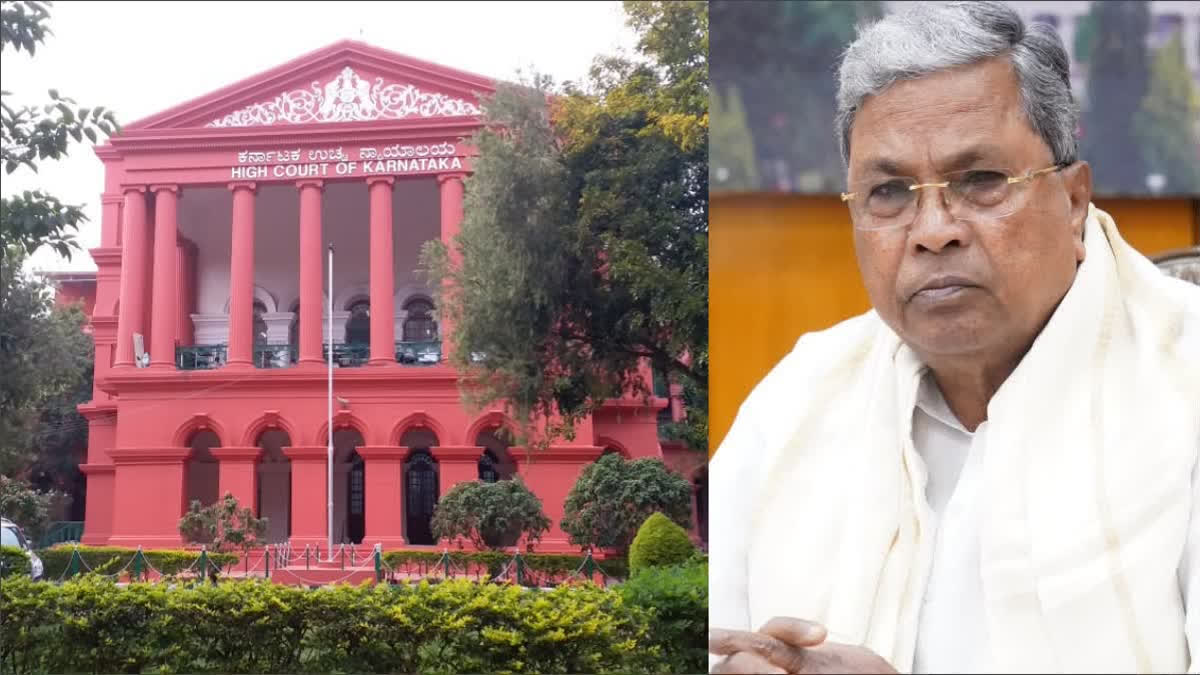Bengaluru: The Karnataka High Court, led by a bench comprising Chief Justice NV Anjaria and Justice KV Aravind, decided to issue notices to all parties and adjourned the hearing to January 20, 2025, after hearing the Chief Minister Siddaramaiah's appeal against a single-judge order. The earlier order had upheld the Karnataka Governor Thaawarchand Gehlot's approval to investigate the Chief Minister in the alleged Mysore Urban Development Authority (MUDA) land denotification scam. The case has garnered significant attention due to its political ramifications and constitutional implications.
Courtroom Proceedings
The legal battle saw multiple prominent senior advocates making their submissions. Senior Advocate Abhishek Manu Singhvi, representing Siddaramaiah, argued that the single judge's order upholding the Governor’s sanction was flawed. He contended that under Section 17A of the Prevention of Corruption Act, prior approval is required from the competent authority before any investigation can proceed. He questioned whether the Governor’s intervention met this legal threshold and argued that the state cabinet’s advice should have been considered.
Kapil Sibal, also representing the state, highlighted the broader constitutional dimensions of the case, emphasising that the Governor’s decision to grant sanction must adhere to established exceptions. “This is not about Siddaramaiah as an individual; it is about protecting constitutional principles,” Sibal remarked, stressing the need for clarity on whether the Governor acted within the ambit of the law.
Key Arguments and Objections
Meanwhile, senior advocate Dushyant Dave, appearing for Devaraju, the original landowner in the dispute, emphasised his role as an 80-year-old farmer who sold the land in question to Siddaramaiah’s brother-in-law. He argued that the single judge’s observations condemned him without a fair hearing, leaving him defenceless in potential criminal proceedings. "I am not involved in politics and only seek protection from vexatious litigation," Dave asserted.
On the other hand, senior advocate KG Raghavan, representing complainant Snehamayi Krishna, opposed the appeals, questioning the maintainability of the petition. He argued that the single judge’s order had merely issued a notice and did not warrant interference by the division bench. Advocate General Shashi Kiran Shetty supported Raghavan, stating that all parties should be notified, and no ex-parte stay should be granted. He suggested that the appeals be deferred to January, which was later agreed upon.
Court’s Observations
The bench maintained a neutral stance throughout the hearing, emphasising that it would not comment on the merits of the case at this stage. Chief Justice Anjaria clarified that all related matters would be heard together to avoid influencing the single judge’s proceedings.
While the complainant's counsel urged the court to dismiss the appeal outright, the bench decided to issue notices to all parties and adjourned the hearing to January 20, 2025.
Background of the Case
The allegations stem from a de-notification of land during Siddaramaiah’s tenure as the Chief Minister. The complainants argue that the denotification favoured certain individuals and violated urban development norms. Siddaramaiah’s defence has maintained that the denotification was lawful and that the Governor’s approval for an investigation was politically motivated.
This case also raises constitutional questions about the Governor’s role and authority in granting sanctions against a sitting Chief Minister.
"The Governor’s intervention must meet the legal thresholds set under Section 17A of the Prevention of Corruption Act. This case is about protecting constitutional principles, not individuals," said Kapil Sibal, senior advocate.
"I am an 80-year-old farmer with no political interests. I only seek protection from baseless prosecutions," said Dushyant Dave, senior advocate
"All related matters will be heard together to ensure a fair and thorough judicial process," disclosed Chief Justice NV Anjaria.
Read more: MUDA Case: Ministers Term ED Investigation 'Politically Motivated'



